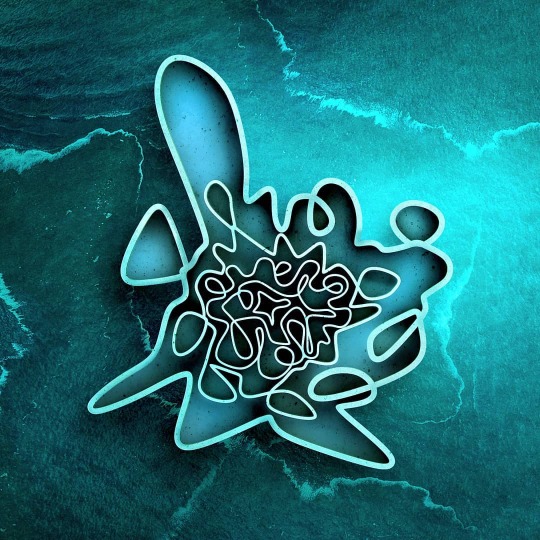#Antirants
Text
FINALLY STARTING ON THE CHARACTER'S SPOTIFY PLAYLISTS
0 notes
Text

240908
with @crusaderarts
68 notes
·
View notes
Text

oh bee tee dubs. new creature! this thing was inspired by a dream i had once. i love this robot dragon raptor mech Thing <3
it's usually pretty reclusive but it bonded with one particular human so it just follows that human around everywhere now. also no one knows where it came from or how old it is it's just There
#dragon#blaidd's ocs#robot#robot dragon#dragon robot#mecha dragon#it CAN eat organic food and use that for energy btw. it's a very strange creature.#dragon oc#antir#ref#reference
137 notes
·
View notes
Text

9 notes
·
View notes
Text

youve heard of antired and problue, now get ready for
#sekaiju#sekaiju a world of creatures#sekaiju a world of creatures antired#sekaiju antired#meet my son. Neutroyellow#art#annie artz
13 notes
·
View notes
Text

reciprocated touch
4 notes
·
View notes
Text
hiiii new fandom


antired took a while to figure out but i love drawing him so much
also i love the feywyrm line 💖
#i do a drawings#sekaiju a world of creatures#sekaiju antired#antired#sekaiju puepuff#sekaiju morphed#sekaiju mutants
12 notes
·
View notes
Photo







“Waterfall Temple” by Antireality,
Animated Photo by @nikolaymuravyev
#art#design#waterfall#waterfall gif#animated image#water temple#antireality#brutalism#canyoning#canoe#canoe tripping#trail#canoe trail#sports#Architecture#concept#cgiart#render#conceptual
144 notes
·
View notes
Photo




Mysterious Archipelago,
Concrete blue island by Antireality
#art#sculpture#maze#archipelago#mysterious#concrete#blue#island#abstractart#abstraction#abstract#antireality#render#conceptual#conceot#cgiart#forms#sea#ocean
109 notes
·
View notes
Text

he HATES crab!!!
18 notes
·
View notes
Photo



Nature Observatory by Antireality
#art#design#architecture#observatory#nature#antireality#landscape#mountains#river#spiral staircase#stairwell#stairway#staircasedesign#Staircases#stairsdesign#concept#render#cgiart
74 notes
·
View notes
Text
I wanna talk. about my characters- im so excited <3
1 note
·
View note
Text
The Philosophy of Metaethics
Metaethics is a branch of philosophy that investigates the foundations, nature, and meaning of ethical concepts, judgments, and language. Unlike normative ethics, which focuses on what is morally right or wrong, and applied ethics, which applies ethical theories to specific situations, metaethics asks deeper, more abstract questions about the nature of morality itself. It explores the origins and meaning of ethical principles, the nature of moral facts, and the relationship between ethical language and the world.
Core Questions in Metaethics
What is the Nature of Moral Judgments?
Metaethics seeks to understand whether moral judgments are expressions of objective truths or merely subjective opinions. This question leads to the debate between moral realism, which posits that moral facts exist independently of human beliefs, and moral anti-realism, which denies the existence of objective moral facts.
Are Moral Values Objective or Subjective?
One of the central questions in metaethics is whether moral values are objective (existing independently of our thoughts and feelings) or subjective (dependent on individual or cultural perspectives). This debate touches on the nature of moral truth and whether it is universal or varies across different contexts.
What Do Ethical Terms Mean?
Metaethics explores the meaning of ethical language. Are terms like "good," "bad," "right," and "wrong" used to describe objective properties, or do they merely express emotions or commands? This question is central to the debate between cognitivism (the view that moral statements express beliefs that can be true or false) and non-cognitivism (the view that moral statements do not express truth-apt beliefs but rather emotions, prescriptions, or commands).
What is the Source of Moral Obligations?
Metaethics examines where moral obligations come from. Are they grounded in divine command, human reason, societal conventions, or individual preferences? This question relates to theories such as divine command theory, moral constructivism, and moral relativism.
How Do We Know Moral Truths?
Another key concern in metaethics is the epistemology of moral knowledge. How, if at all, can we know moral truths? Can moral knowledge be attained through reason, experience, intuition, or some other means? This question explores the connection between moral beliefs and other types of knowledge.
Key Theories in Metaethics
Moral Realism:
Moral realism asserts that there are objective moral facts that exist independently of our beliefs or perceptions. Realists argue that moral statements can be true or false based on these facts. Prominent moral realists include philosophers like G.E. Moore and David Brink.
Moral Anti-Realism:
Moral anti-realism denies the existence of objective moral facts. This category includes several different theories:
Moral Relativism: The view that moral truths are relative to cultures or individuals.
Emotivism: The theory that moral statements express emotional reactions and do not refer to objective facts.
Error Theory: The belief that while moral language attempts to describe objective facts, all such statements are false because no such facts exist.
Cognitivism vs. Non-Cognitivism:
Cognitivism holds that moral statements are capable of being true or false because they express beliefs about the world.
Non-Cognitivism asserts that moral statements do not express beliefs but rather emotional attitudes or prescriptions, thus they cannot be true or false.
Moral Constructivism:
Moral constructivism is the view that moral truths are constructed by procedures or practices, often within a rational or societal framework. It suggests that moral facts are not discovered but created through rational deliberation or social agreements.
Divine Command Theory:
This theory posits that moral obligations are derived from the commands of a divine being. It suggests that what is morally right or wrong is determined by God's will, making moral truth dependent on divine authority.
Moral Relativism:
Moral relativism holds that moral judgments and values are not absolute but vary depending on cultural, societal, or individual perspectives. It challenges the notion of universal moral truths and emphasizes the diversity of moral practices across different contexts.
Moral Subjectivism:
Moral subjectivism claims that moral judgments are based on individual feelings, preferences, or attitudes, making them inherently subjective. According to this view, there are no objective moral truths, only personal or societal opinions.
Importance of Metaethics
Metaethics plays a crucial role in shaping our understanding of morality. By examining the foundations of ethical thought, it helps clarify what we mean when we talk about right and wrong, good and bad. Metaethics also influences how we approach moral disagreements, ethical decision-making, and the justification of moral beliefs. It provides the tools to critically analyze the assumptions underlying various ethical theories and practices, leading to a deeper and more nuanced understanding of morality.
The philosophy of metaethics is essential for anyone interested in the deeper questions surrounding morality. It goes beyond asking what we should do and instead investigates what it means to say that something is right or wrong in the first place. By exploring the nature of moral judgments, the objectivity of moral values, and the meaning of ethical language, metaethics provides a foundation for all other ethical inquiry.
#philosophy#epistemology#knowledge#learning#education#chatgpt#ethics#Philosophy Of Metaethics#Moral Realism#Moral AntiRealism#Cognitivism#NonCognitivism#Moral Epistemology#Ethical Language#Moral Relativism#Moral Constructivism#Divine Command Theory#Moral Subjectivism#metaethics#psychology#morality
2 notes
·
View notes
Photo

CIRCULAR VILLA
Architectural designer ANTIREALITY creates architectural designs and here are some of the most impressive ones

OCEAN GATE

BUTTERFLY CAFÉ

LITTLE LIBRARY
#antireality#architectural designer#architecture#homes#future architecture#little library#butterfly cafe#ocean gate#circular villa
14 notes
·
View notes
Text
Good evening y'all, I just finished watching 'Everything everywhere all at once' for the first time
What the fuck
#this movie#this movie is absolutely insane#i loved it#i was confused the antire time#everything everywhere all the time#everything everywhere all at once
20 notes
·
View notes
